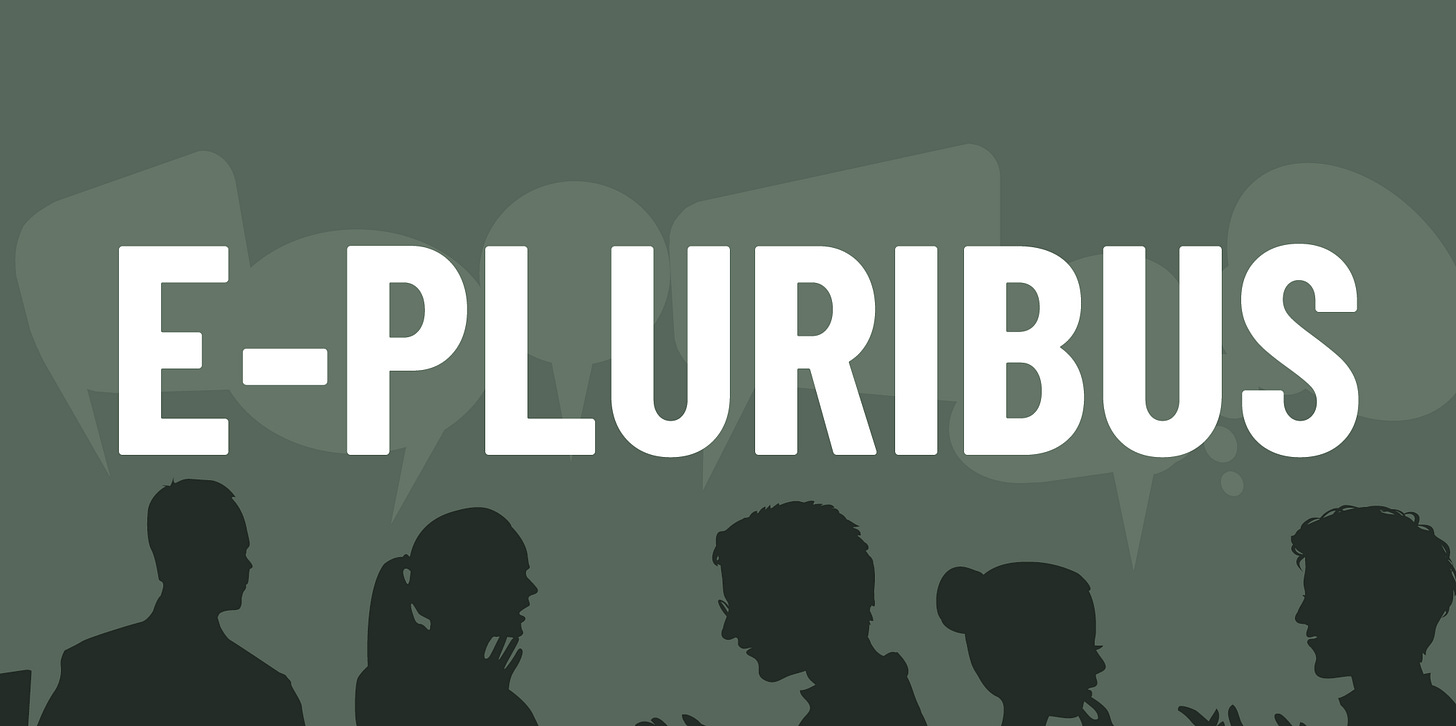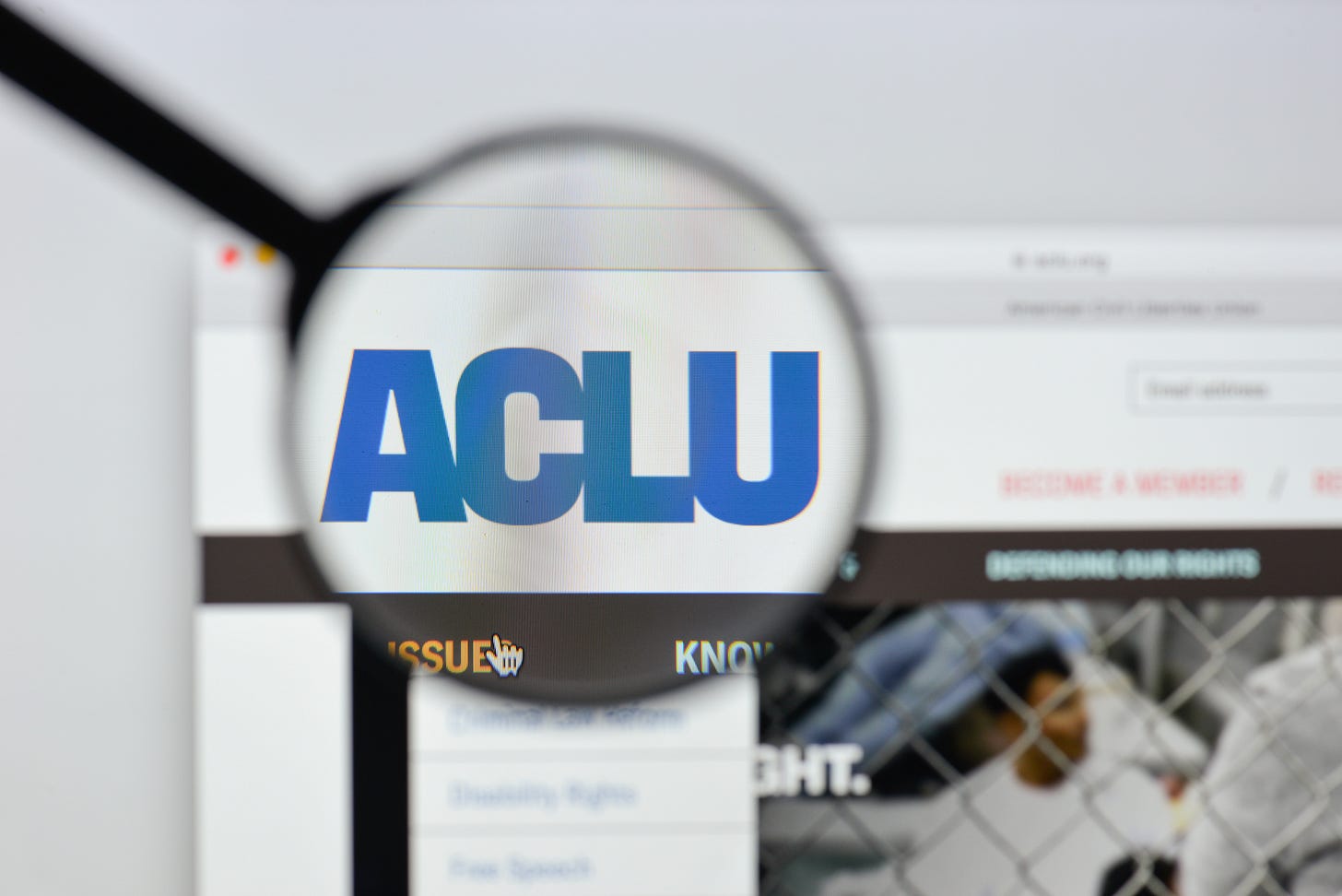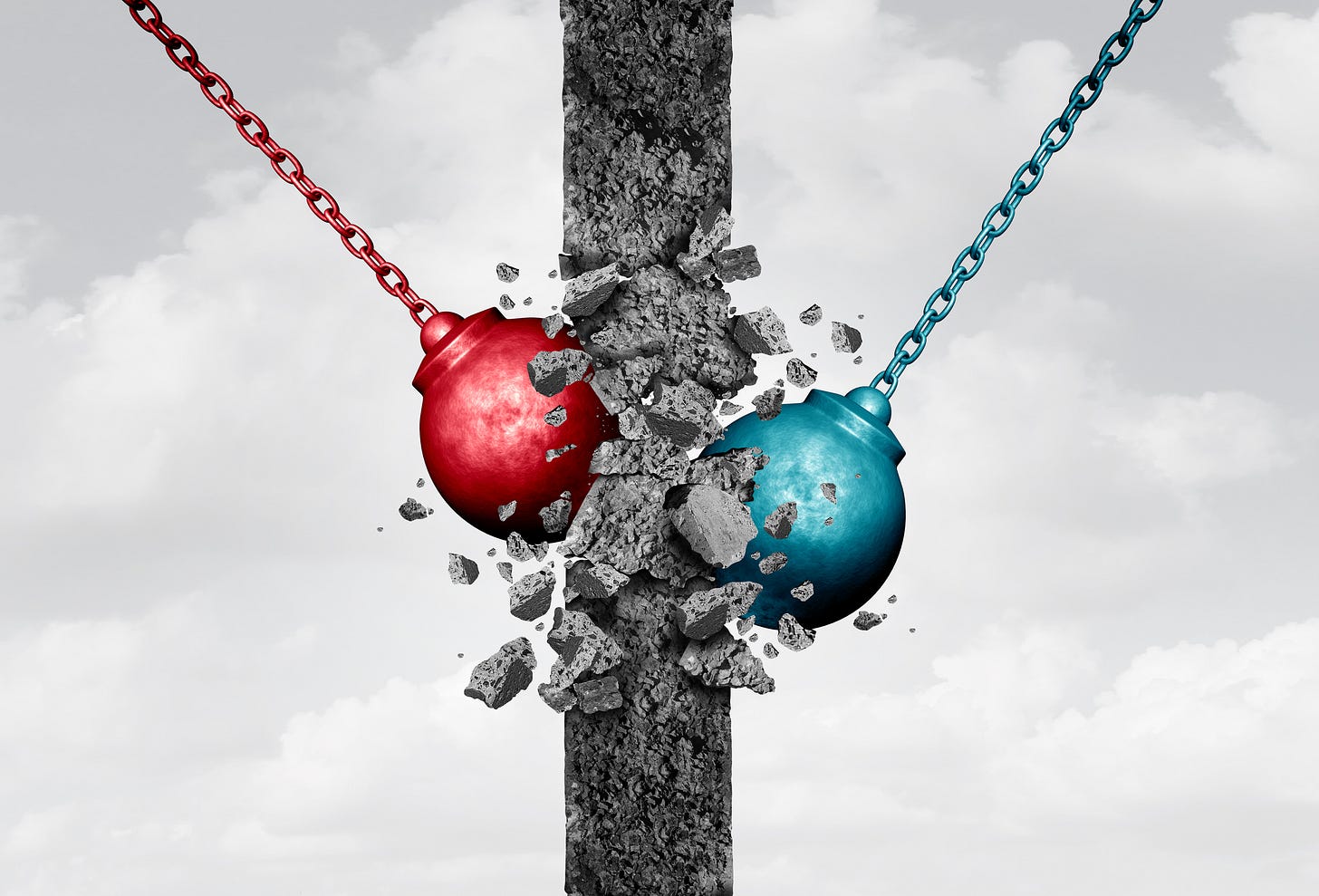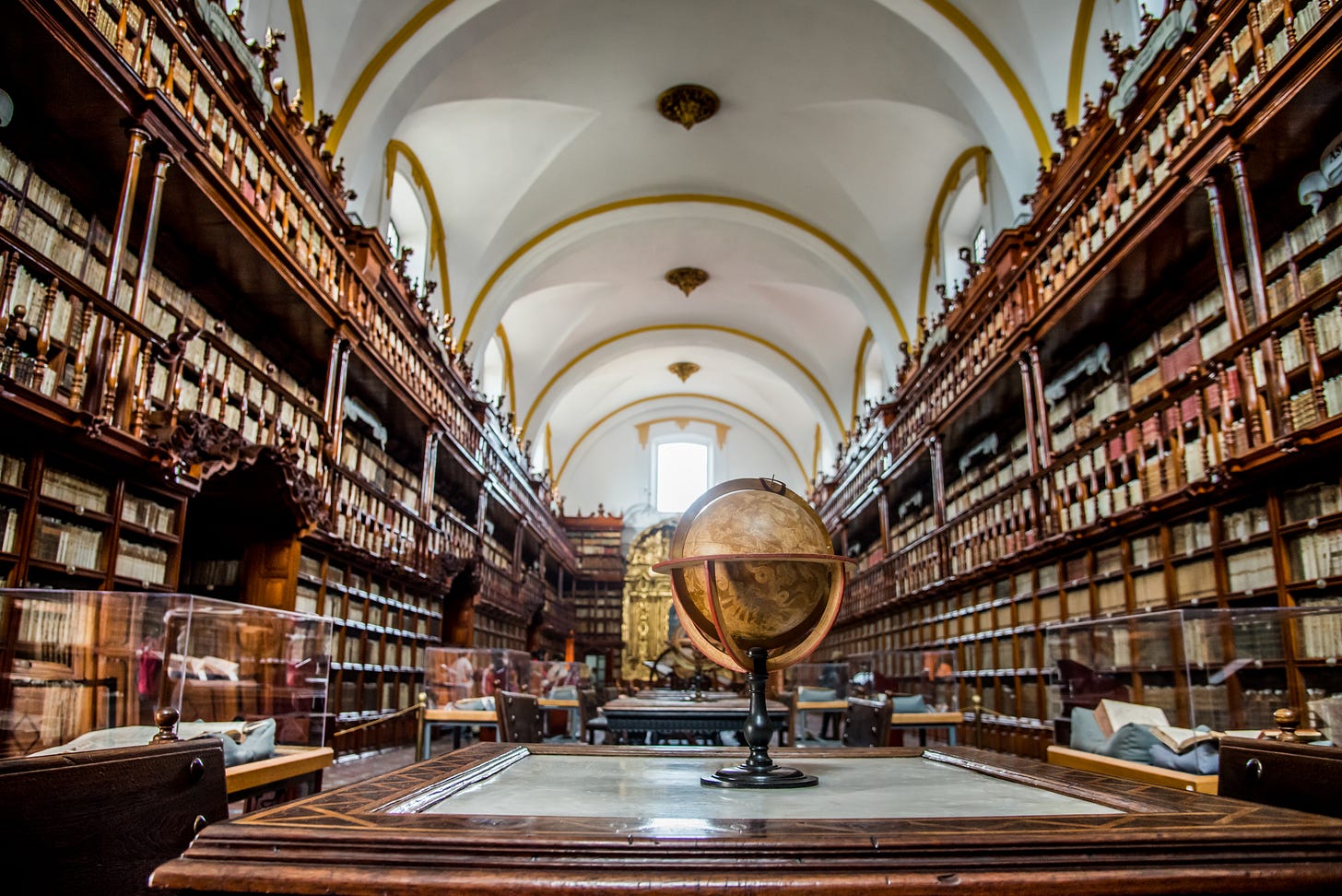E-Pluribus | June 7, 2021
The danger of banning "misinformation," bipartisan illiberalism is no path to unity, and the classics remain a key to understanding our history.
A round up of the latest and best writing and musings on the rise of illiberalism in the public discourse:
Michael Powell: Once a Bastion of Free Speech, the A.C.L.U. Faces an Identity Crisis
The New York Times published a long piece about the internal (and external) struggles at the American Civil Liberties Union over its mission. Once such strong advocates of free speech that the group defended the right of Nazis to rally (as PLURIBUS has highlighted here and here), the ACLU now finds itself morphing into just another mainstream progressive activist group that places intersectionality over principle.
The A.C.L.U., America’s high temple of free speech and civil liberties, has emerged as a muscular and richly funded progressive powerhouse in recent years, taking on the Trump administration in more than 400 lawsuits. But the organization finds itself riven with internal tensions over whether it has stepped away from a founding principle — unwavering devotion to the First Amendment.
[…]
The organization, said its former director Ira Glasser, risks surrendering its original and unique mission in pursuit of progressive glory.
“There are a lot of organizations fighting eloquently for racial justice and immigrant rights,” Mr. Glasser said. “But there’s only one A.C.L.U. that is a content-neutral defender of free speech. I fear we’re in danger of losing that.”
[…]
One hears markedly less from the A.C.L.U. about free speech nowadays. Its annual reports from 2016 to 2019 highlight its role as a leader in the resistance against President Donald J. Trump. But the words “First Amendment” or “free speech” cannot be found. Nor do those reports mention colleges and universities, where the most volatile speech battles often play out.
Jay Caruso: Illiberalism, not partisanship, is fueling the national divide
While bipartisanship is often held out as a panacea to heal what ails America, a bipartisan illiberalism will only make the patient sicker. Jay Caruso takes both parties to task for ditching principle for political power and undermining the foundations that have allowed America to come such a long way towards fulfilling the ideals for which it stands.
It is political illiberalism, not partisanship, that's tearing at the fabric of our republic. Both the Republican Party and the Democratic Party have recently proposed or engaged in stratagems that run counter to liberalism and instead are content to govern in the fashion of an ochlocracy, or mob rule.
The Democrats are under increasing pressure to do away with the legislative filibuster. With only a tiebreaking "majority" in the Senate, if Majority Leader Chuck Schumer cannot find ways to work around the rules to move legislation through the chamber, the trillions of dollars President Joe Biden wants to spend won't see his desk for a signature. To try and find popular support in the country for ending the filibuster, they have resorted to dishonest arguments, claiming that the filibuster is a "relic of the Jim Crow era." This, of course, ignores the fact the Democrats made plenty of use of the filibuster last year, including using it to block South Carolina Sen. Tim Scott's police reform bill. Some Democrats and other activities have resorted to using such puerile phrases as the "tyranny of the minority."
[…]
Republicans have issues with advancing illiberalism as well. The calls to regulate Google, Apple, Twitter, Facebook, and Amazon are little more than appeals to populist anger based on the bogus notion that conservatives are "getting silenced" by Big Tech or via deceptive language regarding Section 230 of the 1996 Communications Decency Act.
J.D. Vance, the author of Hillbilly Elegy and a possible Senate candidate in Ohio, has proposed taxing corporations and regulating Google because it has "too much power." When reminded by Tucker Carlson that Google is a private company, Vance replied, "I don't care." The attempt to equate the power of several corporations with that of the federal government relies on appealing to emotions more than reason, whipping up mob anger (such as silly suggestions to regulate third-party fact-checkers) as a replacement for sound political proposals and ideas.
Read the whole thing.
Cameron Hilditch: Without the Classics, Our History Is Incomprehensible
Even as our struggle with illiberalism in America grows, our educational institutions are moving away from the classics that helped shape and define our political system. Cameron Hilditch sounds a warning at National Review that a true understanding of our history is impossible without the classics, and without a clear understanding of history, we are likely to repeat the same mistakes of fallen civilizations of the past.
The literature and culture of ancient Greece and classical Rome have, until very recently, played a much more central role in the historical consciousness of our civilization than we often realize. In the Western world up until the middle of the last century, to be literate was to have been steeped in these texts during the course of one’s education. As the theologian and historian of late antiquity John Behr notes, in the classics our ancestors found “a ‘symbolic world,’ in terms of which one understood oneself and the events of one’s life.” In this respect it played a role similar to that of the Bible. Current events were constantly interpreted and reinterpreted according to the received record of human events that had been passed down from the twin pillars of Athens and Jerusalem.
[…]
As far as political questions were concerned, the pagan classics often played a more important role in the thinking of our ancestors than that of even the Jewish and Christian scriptures. The Bible does not, after all, conceive of man primarily as a “political animal” in quite the same way as the Greeks and Romans did, and so less thought is given by biblical writers to the specific merits of particular forms of government or to political life more broadly. The “symbolic world” that constituted the political grammar of Western man was therefore by and large the classical world, and each significant political event was understood by way of analogy with something out of Herodotus or Thucydides.
Read it all at National Review.
Around Twitter
The above mentioned ACLU article in The New York Times is causing a stir on Twitter:
The government of Nigeria has blocked Twitter after Twitter removed a tweet by its president:
A short thread from Megan McArdle on one of the shortcomings of technical arguments:














